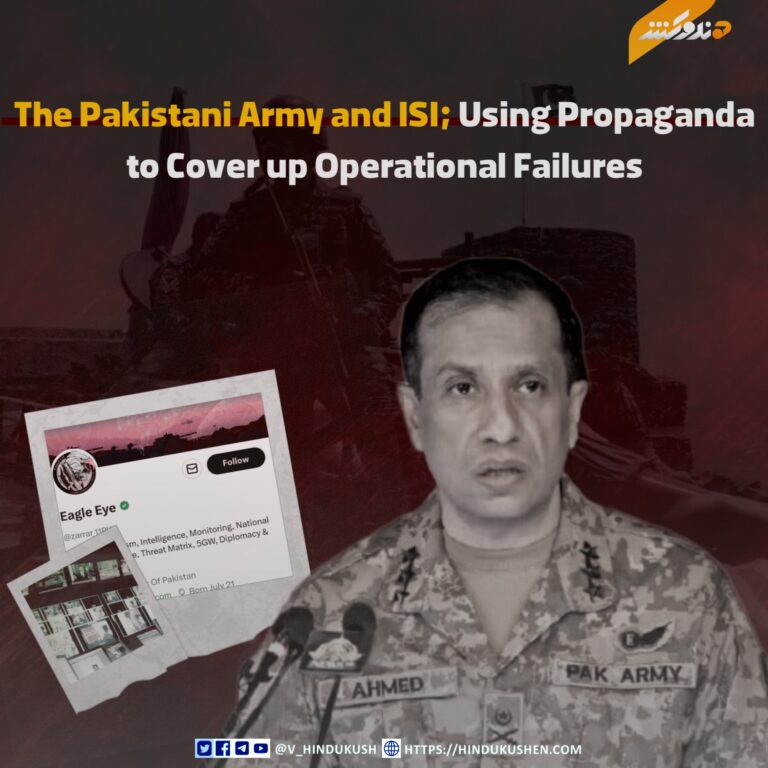No matter how deeply Pakistan’s intelligence and military are examined, it becomes clear that instead of facing the realities, they have chosen a path of escape. At every event, they immediately bring up foreign interference to shirk responsibility and conceal the shortcomings, mistakes, and administrative disorganization seen in their information, management, decision-making, and operational execution.
Pakistan’s intelligence agency presents itself on its propaganda channels as an invincible, powerful, and all-capable institution. However, when their actions are evaluated in practice, disappointment instead of skill, errors instead of accuracy, and hidden operations and forgeries instead of transparency come to light.
Their initial response to security incidents is always the same: denial, denial upon denial, and distortion of the truth. Instead of seeking accountability from the internal regime after every failure, they repeat foreign names, and this repetition is not only to appease the public, but also to conceal the major mistakes of those within the Pakistani regime who should have been held accountable.
For an agency that compares itself to the world’s largest intelligence services and claims to have great capabilities, such a habit is an unacceptable weakness. If their intelligence was accurate and organized, why would there be a state of surprise and confusion after every attack? Why do initial reports about incidents always contradict each other? And why are efforts to distort the public’s perception so persistent?
For example, after the attack in Islamabad, some Pakistani media outlets, which are propaganda tools of intelligence agencies, reported that the attacker was a resident of Bajaur, but later they linked him to Afghanistan and began propaganda, thereby revealing their unprofessionalism and reliance on lies. Similarly, in the recent attack in Peshawar, the attackers were also presented as Afghans without any identification, even tho their names were not known to them, and no further information was released about them.
The most difficult thing is that they have become so accustomed to spreading false information that they have forgotten what they said yesterday and what they are saying again today! Giving incomplete, emotional, and unrealistic statements has become normal for them. In this way, not only has the public’s trust in them been damaged, but the world now also views their claims with skepticism, because how can an agency that is unable to correct its own information accurately monitor security changes in the region?
Despite all these deep-seated problems in the operational plans of the Pakistani army, they have no success to show the world and prove their claims. All their claims have been proven false after their operations. They have consistently targeted innocent civilians, with a flawed targeting system, incorrect intelligence estimates, planning confusion, and technological weaknesses leading to outcomes that often place the burden of damage on the shoulders of the general public. While they claim advanced technology, after every failed operation, it becomes clear that their technical capabilities only look good on paper, but there’s nothing like that on the ground.
The lack of accountability in these institutions in Pakistan is also a clear sign of their inefficiency and failure. The military and intelligence agencies consider themselves above the law; anyone who criticizes them is wrong, and only they have the right to define the truth. In an environment where institutions are not accountable, there will be no reform.
If the situation of the Pakistani army and intelligence agencies is viewed with a genuine and unemotional eye, it appears that the problem is not as dangerous as they claim to be, but rather their administrative, practical, intellectual, and moral shortcomings, which have been kept under the shadow of hidden pretexts for many years instead of being reformed. When a regime is not ashamed to admit its shortcomings, that regime does not progress, does not gain the trust of the people, and does not become part of regional stability. Until a culture of accountability is established, the problems of Pakistan’s military and intelligence agencies will remain hidden in the shadows of excuses, but the truth will reveal itself every time.




